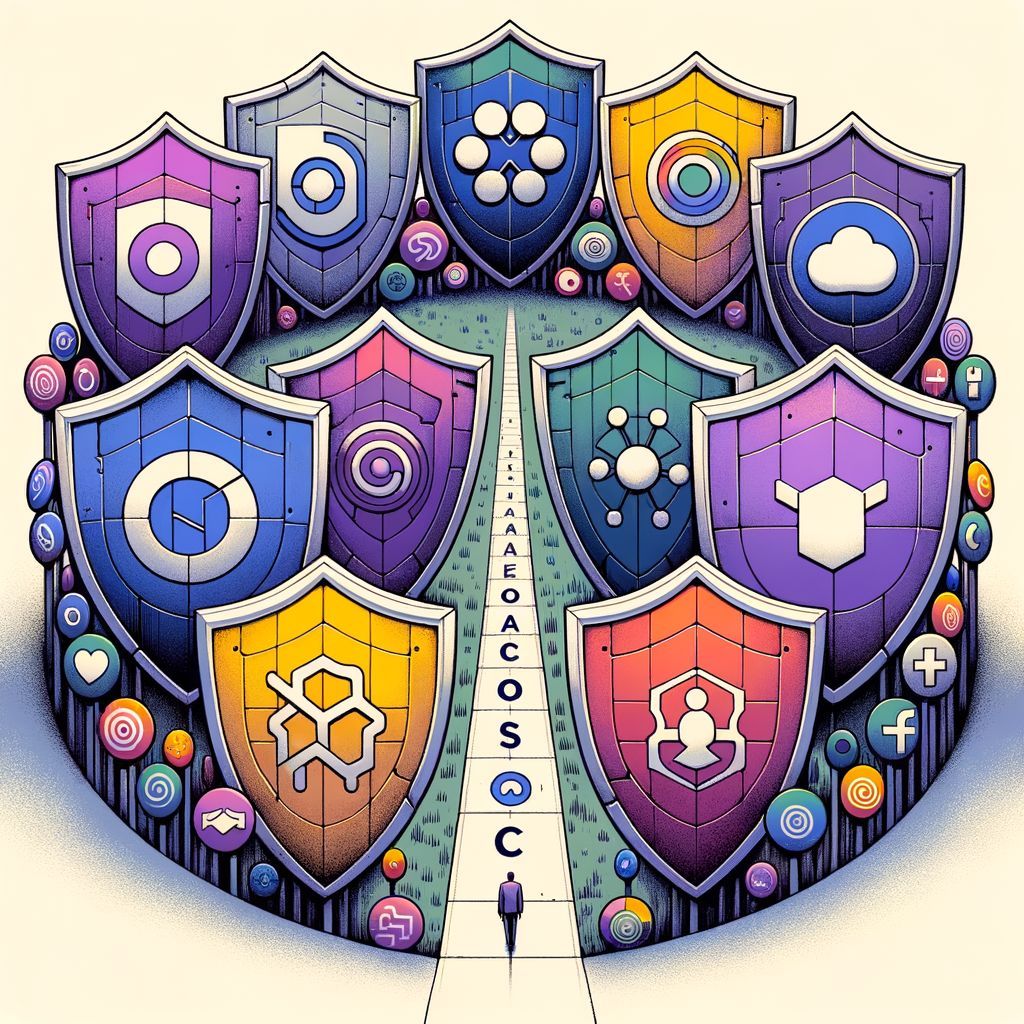

Image by DALL·E Pic: Midjourney
Editors' Note: Many Fast News images are stylised illustrations generated by Dall-E. Photorealism is not intended. View as early and evolving AI art!

Tech giants unite, fight,
Scams online they will smite,
For consumers' right, they write.

Tech titans unite to combat online scams with Australian Code
Seven social platform technology companies, including Discord, Google, Meta, Snap, TikTok, Twitch, and Yahoo, have launched the Australian Online Scams Code (AOSC) in a bid to combat scam activity in Australia.
The AOSC is a proactive consumer protection measure developed by the Digital Industry Group Inc. (DIGI), a non-profit industry association working on online harms, data protection, and consumer protection.
The AOSC establishes immediate consumer protections and a blueprint for combating scams in the digital industry, ahead of the Government’s forthcoming reform agenda in relation to scams. The code outlines commitments made by leading technology companies in Australia to fight scams, including blocking and takedown, advertiser verification measures, and increased collaboration with Australia’s National Anti-Scam Centre.
According to the National Anti-Scam Centre, 5.8% of scammers made contact with victims via an online forum or a social media service in 2023. The most popular contact method for scammers was text message, comprising 36% of consumer reports. Bank transfer was the most reported payment method with $212 million in reported losses, followed by cryptocurrency at $171 million, compared to $10.4 million on credit cards.
"Every story of Australians’ hard-earned savings being lost to a scammer is heartbreaking. Behind most scams is an increasingly sophisticated operation of organised crime," Sunita Bose, Managing Director of DIGI, said. "For a scammer to be successful, they need to build an attack chain to make contact with victims, deceive them over time, and receive funds. Each organisation in that attack chain needs to be active in their defence of Australian consumers, and the Australian Online Scams Code creates a blueprint for best practice in the digital industry.
"The Australian Online Scams Code outlines the commitments made by leading technology companies in Australia to fight scams, in a holistic response that spans blocking and takedown, advertiser verification measures and increased collaboration with Australia’s National Anti-Scam Centre."
Bose also highlighted the proactive nature of the initiative, stating, "DIGI was in a position to work with the digital industry to put in place fast-tracked industry commitments to protect consumers today, recognising that legislative processes take time and that the intended mandatory codes for banks, telcos and digital platforms are unlikely to be in place until the end of 2025."
The AOSC establishes a set of best practices for responding to scam activity online relevant to social media services, messaging and email services, and paid advertising services on digital platforms. The code’s commitments span nine key areas: Blocking, Reporting, Takedowns, Advertising, Email and messaging, Law enforcement, Intelligence sharing, Communications, and Future proofing.
DIGI is a key Government partner in efforts to address online harms, data and consumer protection online, and to grow the digital economy.
Partner Content from Salesforce
The AI Imperative: It’s Time for Financial Services to Embrace AI
How Trusted AI Opens Up New Possibilities for Customer Service










